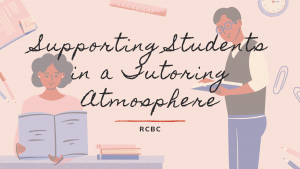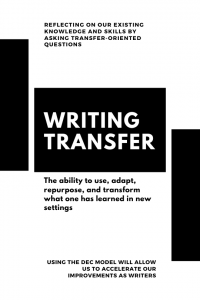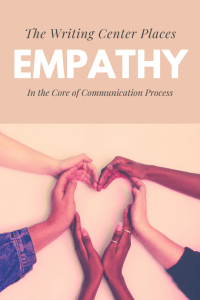Congratulations to all students on completing another semester! The spring may not have been without its challenges, but students can now look forward to their summer plans, and graduates can celebrate their achievements while preparing for a memorable transition to the workplace. We thought now would be the perfect time to reflect on the spring semester. RCBC Communication Consultants each wrote a response to the following questions:
-
- What were some highlights and challenges of this semester?
- What can you look forward to in the summer and/or fall?

Julia Mancuso (Finance, ’24)
Spring 2022 semester led to new highlights and challenges throughout the last few months. As the warm weather emerged and the mask mandate disappeared, it felt great to be back in the classroom and be with my peers. Additionally, taking more business core classes this semester led to new interests in addition to a challenging academic schedule that certainly tested my endurance. As a Finance major and Psychology minor, I was academically engaged taking a wide variety of classes for my interests.
This semester, I was able to assist in the implementation of the Women in Business conference in person, which was a true feat! It was rewarding to plan the conference in addition to attending the event as well. I had the opportunity to network with Lehigh professionals and women in business who spoke about their experiences in the ever-changing business world. I look forward to the Fall 2022 semester and am excited by the endless possibilities and opportunities that the future holds!
 Grace Kwon (Finance, ’23)
Grace Kwon (Finance, ’23)
One of the main highlights of this spring semester was definitely the warm weather. After months of cold and dark weather, it was really nice to see the sun these past couple of weeks. Also, due to the pandemic, I (along with many other juniors) have not experienced a full spring semester on campus, so now that I have almost experienced a full semester, I really enjoyed it and really liked seeing all the flowers bloom on campus.
Also, another highlight related to my academics is learning more about the finance field through my finance classes. Compared to last semester, I feel like I have definitely obtained more financial knowledge and learned more about topics that I was always interested in knowing more about. Although these courses were one of my highlights, classes, in general, were also one of my biggest challenges this semester. Due to my desire to perform well in all my classes, I found myself being stressed out and overwhelmed at times. However, I do think I have learned to better manage my stress and time during this semester.
For the next fall semester, I am most looking forward to being a senior! It feels like yesterday that I was a freshman in college, so becoming a senior is exciting, yet nerve-racking. I am also looking forward to creating more memories with my friends next semester, and having fun before we all graduate in the spring!
 Xinyi Cui (Accounting and BIS, ’22)
Xinyi Cui (Accounting and BIS, ’22)
As a senior, I never expected to have so many events this semester, and to be honest, life after the pandemic has become much more colorful. At first, it was really an honor to have a big dinner with the Accounting professors and other Accounting students who share similar experiences at Lehigh. Also it’s great to try different mental health programs like plant therapy and the new Headspace app. Most importantly, graduation is coming and should be the most memorable part of my 2022 Spring!
Beyond graduation, I really look forward to a trip to Germany this summer to explore a different country and culture, as well as practice my language skills. It was hard to imagine that I would be able to extend my studies post-graduation in Germany, but now I’m really savoring this awesome opportunity! Meanwhile, since I’m graduating from Lehigh in May, I am starting a new chapter in the fall, and face a big change in my identity – from student to employee – which is both exciting and nerve-racking. Overall, I just want to say best wishes to all 2022 graduates!
Many thanks for a great spring semester to our readers and those who visited our center! Feel free to share your own reflections in the comments below.
Get information and resources about our center at The Philip Rauch Center for Business Communication.

 You may have heard the advice that, when one is working to help an individual, it is important to “Get on their level.” One important strategy for getting on the same level is to sit next to one another, elbow-to-elbow, a strategy we use in the Rauch Center. When one is directly on the level of those who they are assisting, in both a literal and figurative sense, studies show a higher success rate. In
You may have heard the advice that, when one is working to help an individual, it is important to “Get on their level.” One important strategy for getting on the same level is to sit next to one another, elbow-to-elbow, a strategy we use in the Rauch Center. When one is directly on the level of those who they are assisting, in both a literal and figurative sense, studies show a higher success rate. In  Xinyi Cui:
Xinyi Cui: 



